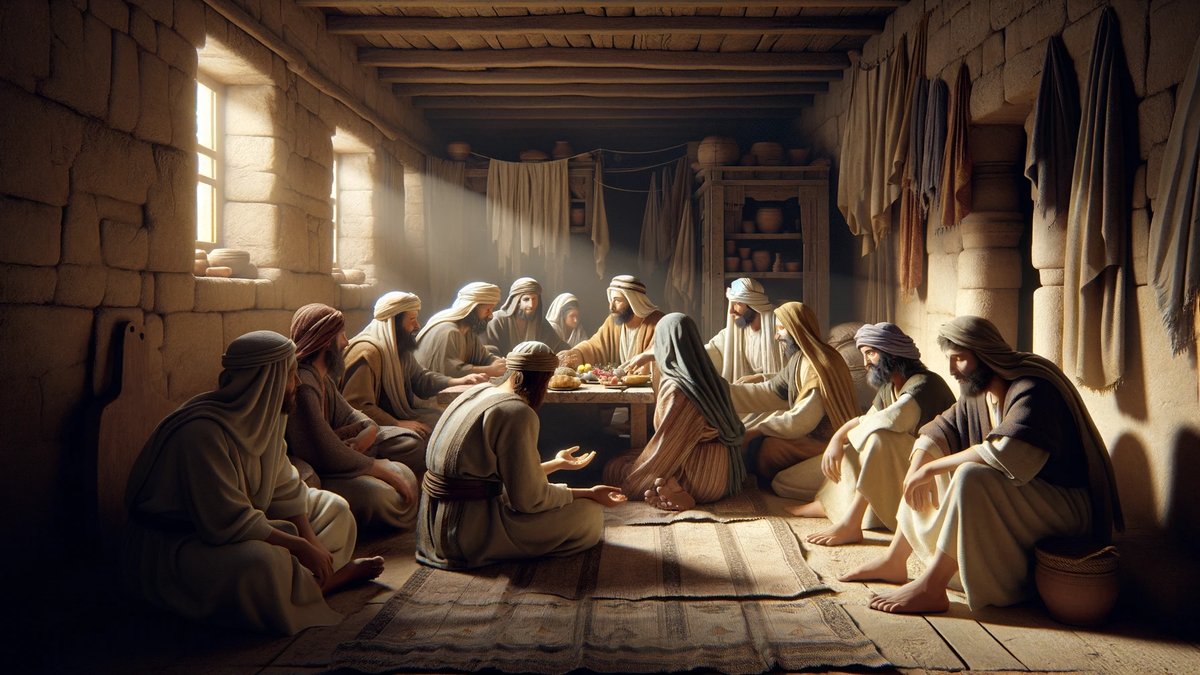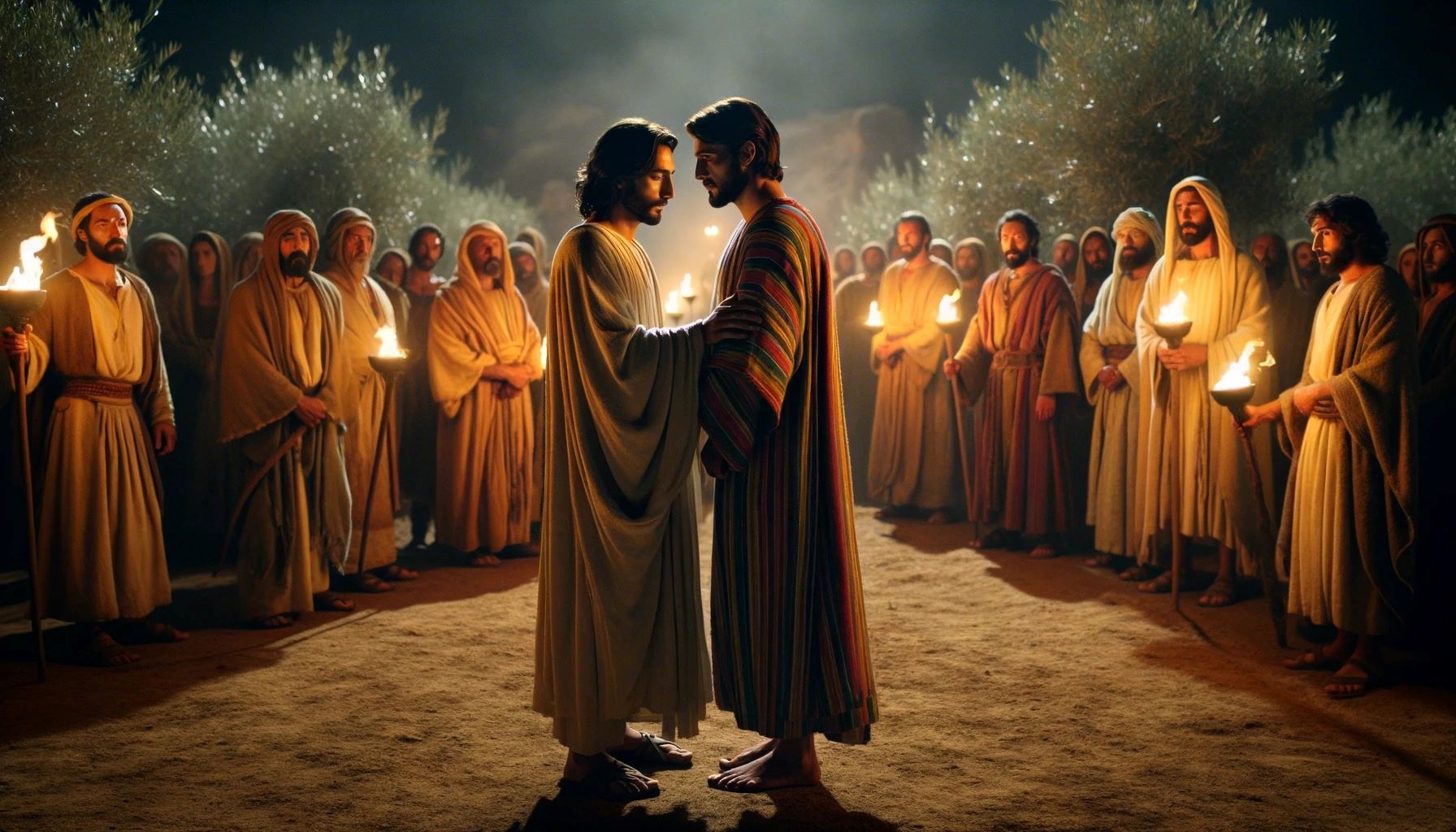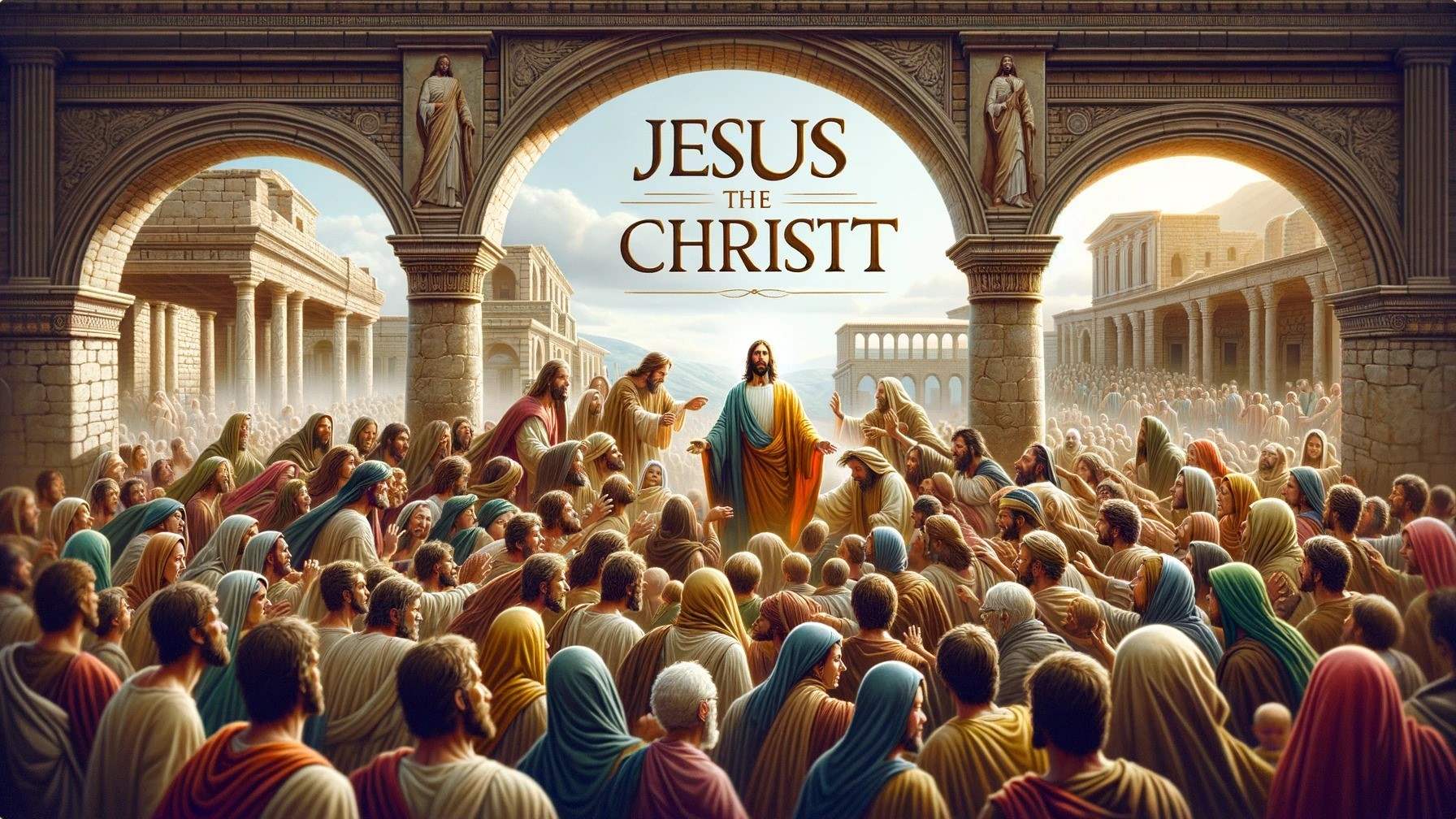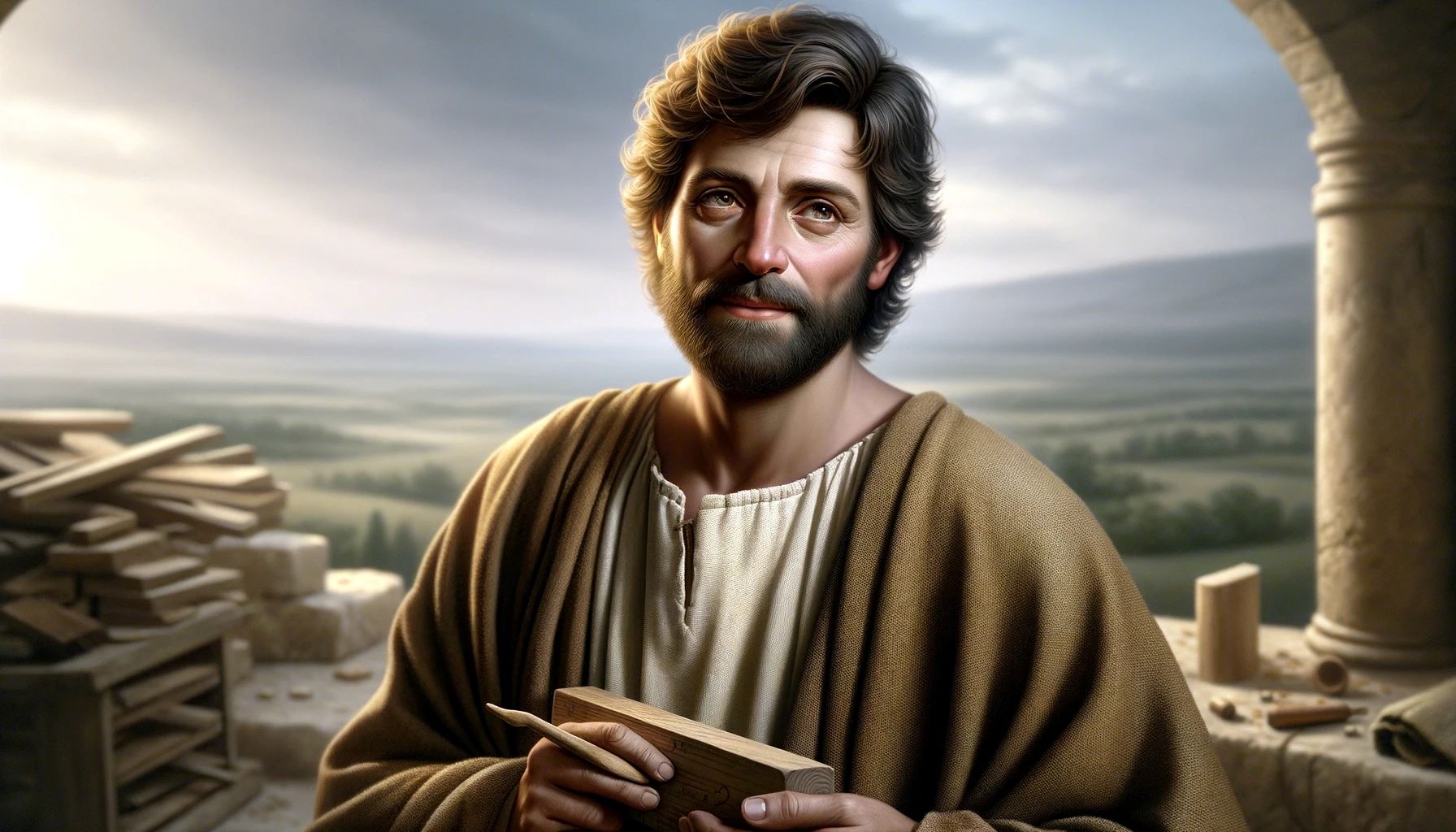Home>Christian Videos>Bible Stories>Who Prophesied The Coming Of Jesus Christ


Bible Stories
Who Prophesied The Coming Of Jesus Christ
Published: February 29, 2024
Peter Smith, Editorial Director at Christian.net, combines deep insights into faith, politics, and culture to lead content creation that resonates widely. Awarded for his contributions to religious discourse, he previously headed a major organization for religious communicators, enhancing dialogue on faith's societal impacts.
Discover the biblical prophecy of Jesus Christ's coming in this captivating collection of Bible stories. Explore the fulfillment of ancient predictions and their significance. Unlock the mysteries of the Bible.
(Many of the links in this article redirect to a specific reviewed product. Your purchase of these products through affiliate links helps to generate commission for Christian.net, at no extra cost. Learn more)
Table of Contents
The Old Testament Prophecies
The Old Testament is filled with prophecies that foretold the coming of Jesus Christ. These prophecies, written hundreds of years before Jesus' birth, serve as a testament to the divine plan of salvation and the fulfillment of God's promises. The prophecies in the Old Testament not only predicted the birth of Jesus but also described his life, ministry, and the purpose of his coming to earth. These prophecies are a crucial aspect of Christianity, as they provide evidence of Jesus as the long-awaited Messiah.
-
Isaiah 7:14 – This prophecy foretold the virgin birth of Jesus, stating, "Therefore the Lord himself will give you a sign: The virgin will conceive and give birth to a son, and will call him Immanuel." This prophecy was fulfilled in the New Testament when Mary, a virgin, gave birth to Jesus.
-
Micah 5:2 – The prophecy in Micah predicted the birthplace of Jesus, stating, "But you, Bethlehem Ephrathah, though you are small among the clans of Judah, out of you will come for me one who will be ruler over Israel, whose origins are from of old, from ancient times." This prophecy was fulfilled when Jesus was born in Bethlehem.
-
Isaiah 53:5 – This prophecy described the suffering and sacrifice of Jesus, stating, "But he was pierced for our transgressions, he was crushed for our iniquities; the punishment that brought us peace was on him, and by his wounds, we are healed." This prophecy found its fulfillment in the crucifixion of Jesus and the atonement for the sins of humanity.
-
Psalm 22:16-18 – The psalmist prophesied the crucifixion of Jesus, describing details such as the piercing of his hands and feet and the casting of lots for his garments. This prophecy was fulfilled in the New Testament accounts of Jesus' crucifixion.
-
Zechariah 9:9 – This prophecy foretold the triumphant entry of Jesus into Jerusalem, stating, "Rejoice greatly, Daughter Zion! Shout, Daughter Jerusalem! See, your king comes to you, righteous and victorious, lowly and riding on a donkey, on a colt, the foal of a donkey." This prophecy was fulfilled when Jesus entered Jerusalem on Palm Sunday.
The Old Testament prophecies not only provided a roadmap for the coming of Jesus but also demonstrated the divine orchestration of events throughout history. These prophecies serve as a foundational belief in Christianity, affirming Jesus as the fulfillment of God's promises and the savior of humanity.
The Prophets Who Foretold the Coming of Jesus
The prophets of the Old Testament played a crucial role in foretelling the coming of Jesus Christ. These revered figures were chosen by God to communicate His divine messages to the people of Israel, and their prophecies about the Messiah laid the foundation for the Christian faith. Here are some of the prominent prophets who foretold the coming of Jesus:
-
Isaiah: Often referred to as the "Fifth Gospel" due to the depth of his prophecies about the Messiah, Isaiah provided detailed insights into the birth, life, and mission of Jesus. His prophecies, such as the virgin birth (Isaiah 7:14) and the suffering servant (Isaiah 53), are among the most well-known and cited in the New Testament.
-
Micah: Micah's prophecy about the birthplace of the Messiah, stating that He would come from Bethlehem (Micah 5:2), was instrumental in confirming Jesus' fulfillment of this prophecy when He was born in Bethlehem.
-
Jeremiah: While Jeremiah is often recognized for his prophecies about the new covenant, his insights into the righteous Branch and King who would reign wisely (Jeremiah 23:5-6) align with the portrayal of Jesus as the promised Messiah.
-
Daniel: Daniel's prophecies not only provided a timeline for the coming of the Messiah but also offered glimpses into the nature of His kingdom and His role as the Anointed One (Daniel 9:25-26).
-
Zechariah: Zechariah's prophecy about the triumphant entry of the Messiah into Jerusalem, riding on a donkey (Zechariah 9:9), found its fulfillment in Jesus' entry into Jerusalem on Palm Sunday, as recorded in the New Testament.
These prophets, among others, served as vessels of God's revelation, proclaiming the future arrival of the long-awaited Savior. Their words, recorded in the Old Testament, continue to resonate with believers, affirming the divine orchestration of Jesus' coming and His fulfillment of the Messianic prophecies.
The Fulfillment of Prophecies in the New Testament
The New Testament serves as a testament to the fulfillment of the Old Testament prophecies regarding the coming of Jesus Christ. The Gospels, written by Matthew, Mark, Luke, and John, meticulously document how Jesus fulfilled the prophecies, validating His identity as the long-awaited Messiah. The fulfillment of these prophecies not only solidifies Jesus' divine role but also underscores the continuity between the Old and New Testaments, affirming the unity of God's redemptive plan throughout history.
Fulfillment in the Birth and Early Life of Jesus
- Virgin Birth: The Gospel of Matthew (1:22-23) explicitly states that the virgin birth of Jesus fulfilled the prophecy of Isaiah 7:14, emphasizing the miraculous nature of His conception and the fulfillment of ancient prophecy.
- Bethlehem Birth: Both Matthew (2:5-6) and Luke (2:4-7) affirm that Jesus' birth in Bethlehem fulfilled the prophecy of Micah 5:2, establishing His lineage and birthplace in accordance with the Old Testament prophecies.
Fulfillment in the Life and Ministry of Jesus
- Ministry in Galilee: Matthew (4:13-16) highlights Jesus' ministry in Galilee as the fulfillment of Isaiah's prophecy (Isaiah 9:1-2), portraying Jesus as the light shining in the darkness, bringing hope to the people.
- Healing and Miracles: The Gospel accounts of Jesus' healing and miracles align with the prophetic descriptions in Isaiah 35:5-6, affirming His identity as the promised Messiah who would bring restoration and wholeness to the people.
Read more: Who Prophesied John The Baptist
Fulfillment in the Death and Resurrection of Jesus
- Suffering and Atonement: The detailed depiction of Jesus' suffering, crucifixion, and atonement in the Gospels corresponds to the prophecies in Isaiah 53, portraying Him as the suffering servant who would bear the sins of many.
- Resurrection: The resurrection of Jesus, as recorded in all four Gospels, fulfills the prophecy in Psalm 16:10, affirming His victory over death and the fulfillment of ancient promises regarding the Messiah's triumph over the grave.
Fulfillment in the Second Coming of Jesus
- Return and Reign: The New Testament epistles and the book of Revelation anticipate the second coming of Jesus, aligning with the prophetic descriptions of His return and reign in the Old Testament, emphasizing the continuity of God's redemptive plan through the fulfillment of future prophecies.
The New Testament not only presents Jesus as the fulfillment of the Messianic prophecies but also emphasizes the ongoing relevance of these prophecies in the lives of believers. The fulfillment of these prophecies in the life, death, and resurrection of Jesus serves as a cornerstone of the Christian faith, affirming His divine identity and the continuity of God's redemptive work as foretold in the Old Testament.
The Significance of Prophecies in Christianity
The significance of prophecies in Christianity extends beyond mere predictions of future events; it encompasses the foundational beliefs and the divine orchestration of God's redemptive plan. The prophecies regarding the coming of Jesus Christ serve as a testament to the faithfulness of God and His sovereignty over time and history. They hold profound significance in shaping the Christian worldview and affirming the identity of Jesus as the long-awaited Messiah.
Affirmation of God's Faithfulness
The fulfillment of prophecies in the life, death, and resurrection of Jesus underscores the unwavering faithfulness of God. The accuracy and precision with which the prophecies were fulfilled validate the divine inspiration behind the Old Testament writings and affirm God's sovereignty over human affairs. This affirmation of God's faithfulness provides believers with a firm foundation for their faith, instilling confidence in the reliability of God's promises and the certainty of His redemptive work.
Read more: Who Prophesied About John The Baptist?
Validation of Jesus' Identity
The Messianic prophecies serve as a compelling validation of Jesus' identity as the promised Savior. The intricate details foretold in the Old Testament, such as the virgin birth, lineage, birthplace, and redemptive mission of the Messiah, find their fulfillment in the life and ministry of Jesus as recorded in the New Testament. This validation not only solidifies Jesus' role as the fulfillment of ancient promises but also establishes the continuity between the Old and New Testaments, affirming the divine origin of His mission and the significance of His redemptive work.
Confirmation of Divine Plan of Salvation
The prophecies concerning the coming of Jesus confirm the divine plan of salvation orchestrated by God. They reveal the intentional and strategic unfolding of God's redemptive work throughout history, culminating in the incarnation, sacrifice, and resurrection of Jesus. This confirmation underscores the unity of God's purpose across the Old and New Testaments, emphasizing the coherence of His redemptive plan and the centrality of Jesus in bringing about the reconciliation between God and humanity.
Strengthening of Faith and Hope
For believers, the fulfillment of prophecies in Jesus Christ serves as a source of strength, faith, and hope. The realization that God's promises, spoken through the prophets centuries before, have come to fruition in Jesus instills a deep sense of assurance and confidence in the reliability of God's word. This strengthening of faith and hope empowers believers to navigate life's challenges with the understanding that God's faithfulness endures, and His promises are steadfast, ultimately pointing to the fulfillment of His kingdom and the hope of eternal life.
Continual Relevance in Christian Faith
The significance of prophecies in Christianity extends beyond historical fulfillment; it carries continual relevance in the lives of believers. The Messianic prophecies not only affirm Jesus as the fulfillment of ancient promises but also serve as a reminder of the ongoing fulfillment of God's redemptive work in the present and the anticipation of His future promises. This continual relevance reinforces the enduring impact of the prophecies in shaping the Christian faith and fostering a deep sense of connection to God's redemptive narrative.
In essence, the significance of prophecies in Christianity encompasses the affirmation of God's faithfulness, the validation of Jesus' identity, the confirmation of the divine plan of salvation, the strengthening of faith and hope, and the continual relevance in the Christian faith. These prophecies stand as a testament to the divine orchestration of God's redemptive work and serve as a cornerstone of the Christian worldview, affirming the fulfillment of ancient promises in Jesus Christ.













